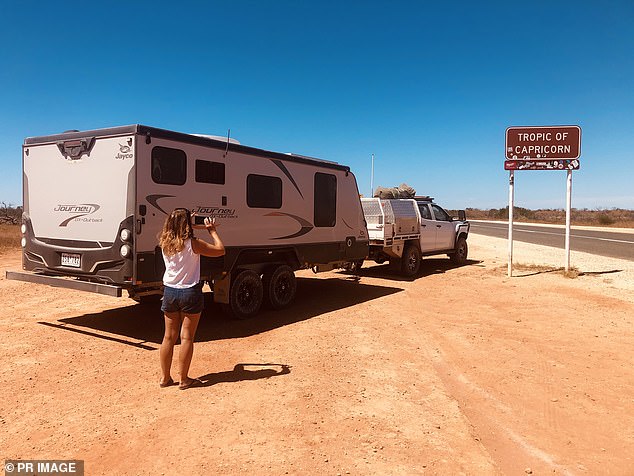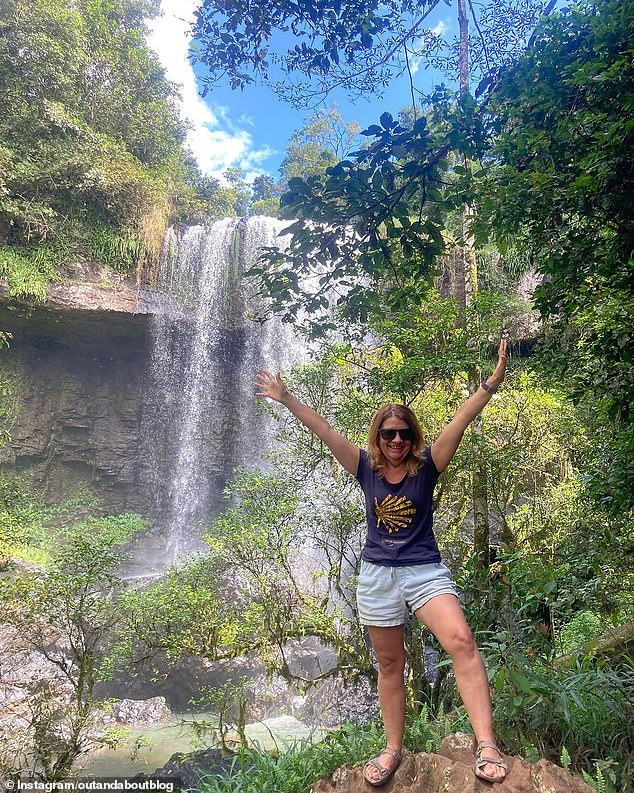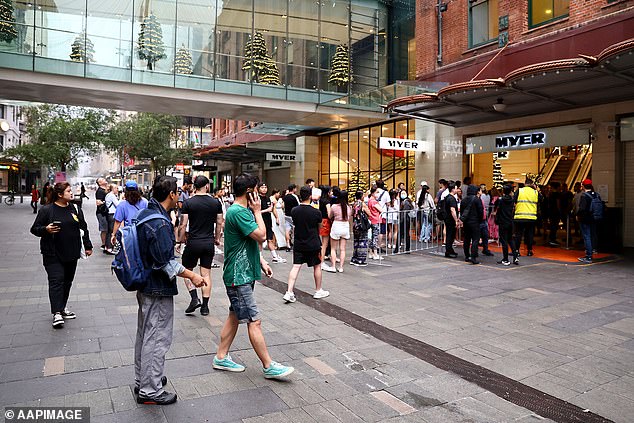Cost-of-living crisis: Couple ditch city living for life in a caravan exploring Queensland and Western Australia
The day Miriam Blaker left her city life behind to explore Australia in a caravan, she saw a huge rainbow bend across the sky.
“Maybe this sounds a little woo-woo, but I felt like this is the start of something really big,” Ms Blaker said. “I really felt that in my bones.”
The sign in the Melbourne sky turned out to be prophetic.
What was intended to be a three-month escape from the doldrums of the Covid pandemic in the city in July 2021 became a two-year road trip with no end in sight.
Mrs Blaker and her husband Doug left their professional jobs and sold their childhood home, leaving the daily grind for the vast coastline of Western Australia and the balmy tropics of far north Queensland.
Along the way, they swam in crystal clear waters, explored cliffs and gorges, and watched the sun set over the ocean on secluded white-sand beaches.
What was supposed to be a three-month escape from the doldrums of the city’s Covid pandemic in July 2021 turned into a two-year road trip with no end in sight

The day Miriam Blaker left her city life to explore Australia in a caravan, she saw a huge rainbow bend across the sky
Ms Blaker says the trip changed her outlook on life, as the stress of a mortgage, bills and the complications of city life disappeared into the rearview mirror.
“When you’re on the road, the concerns you have are very different from those at home because they’re about survival: where to stay, food and water,” she said.
It’s really going back to basics.
“When we wake up, the view is always different, and I love that.”
The couple have met an increasing number of young professionals working remotely from their vans or families homeschooling their children on extended trips around Australia.
“Covid made a lot of people reassess their lives, their values, their struggles, the things they paid for at home, the way they worked,” says Ms Blaker.
‘More and more people are realizing that they can live in a different way.’
Australia’s caravan parks have become the unlikely hub of post-pandemic life as the country’s population is more on the move than ever.
Parks are not only resting places for people exploring a new life along the way, but also havens for people who have been forced out of the rental market or lost their homes in disasters.
Luke Chippindale of the Caravan Industry Association says parks have responded by embracing their social purpose.
‘At the heart of caravanning and camping is connection,’ says Mr Chippindale.
“We are leaving because we want to feel connected to our regional and rural areas, and to the country, and we want to feel connected to the people we travel with.
‘So the way we respond to disasters is often just an extension of that.
‘We try to put our arms around people as much as possible.’
Caravan parks may also develop as rural Australia takes the lead in the country’s transition to renewable energy.
Some operators have the potential to house solar panels, energy storage batteries and electric vehicle chargers, which is a technological boon for locals and visitors alike.

“Covid really caused a lot of people to start reassessing their lives, their values, their struggles, the things they paid for at home, the way they worked,” Ms Blaker said.

Mrs Blaker and her husband Doug left their professional jobs and sold their childhood home, leaving the daily grind for the vast coastline of Western Australia and the balmy tropics of far north Queensland
Mr Chippindale says a community-based focus on sustainability is just one way caravan parks are changing to support a decades-old tourism industry that is adding billions of dollars to regional economies.
‘Getting up with the caravan is just as applicable today as it was twenty or thirty years ago,’ he says.
“Now you can get what they call a ‘divorce-saving’ service, where the park manager helps you reverse your van, right up to the option to pull up in an electric car and stay in a three-bedroom cabin.”
Martin and Kylie Ledwich were among many caravanning and camping adventurers who collectively poured $10.45 billion into regional Australia during their travels last year.
The Ledwichs, former civil servants, have been on the road for most of the past five years, having sold their home in Melbourne’s Craigieburn in 2018 ahead of what they thought would be a 12-month journey.
Since then, they’ve been slowly circling Australia, passing through the middle in their Roadstar Infinity caravan named Buzz Lightyear, after the superhero action toy character from the Disney-Pixar Toy Story franchise.
They have traversed the outback on the Great Central Road from Western Australia to the Northern Territory and the Plenty Highway to Queensland, once towing their van to Cape York.
Their dogs Poppy, a white terrier, and Chorizo, a sausage dog, have kept them company.
“It certainly doesn’t feel like we’ve been on the road for five years; we don’t really keep track of time,’ says Mr Ledwich from a camping spot near Gladstone, Queensland.
“That’s one of the nice things about it. Sometimes we look at each other and say, “What day is it today?”
“It’s a great way to live.”
Mr Ledwich said they have noticed a surge in people traveling in vans in recent years and parks are booked up months in advance.
“If you can bear to live together in a six-foot caravan and not get on each other’s nerves, this is a fairly cheap lifestyle.”
The couple has no firm plans to return to their normal lives.
“The back of our van has our names written on it and ‘to infinity and beyond.'”
